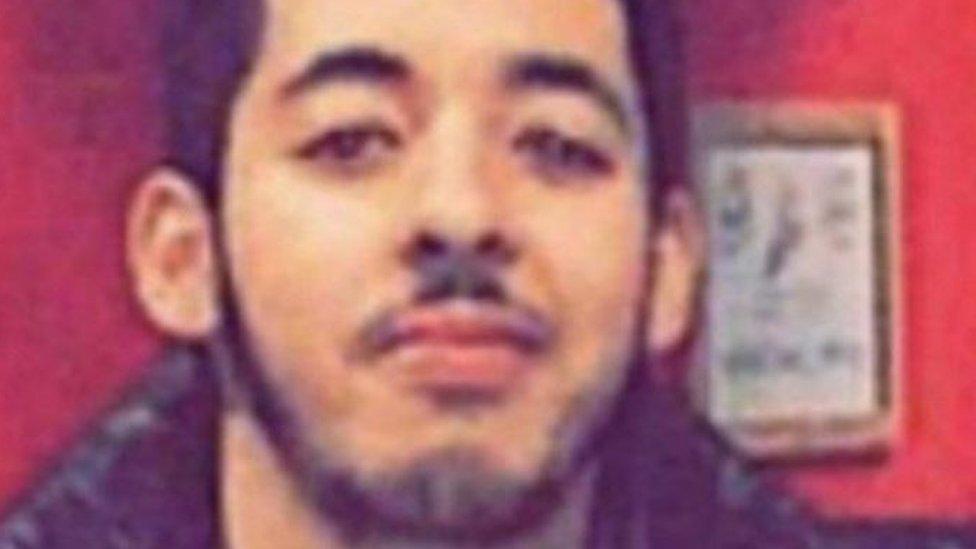Manchester Arena Inquiry: Bomber 'discussed martyrdom with inmate'
- Published
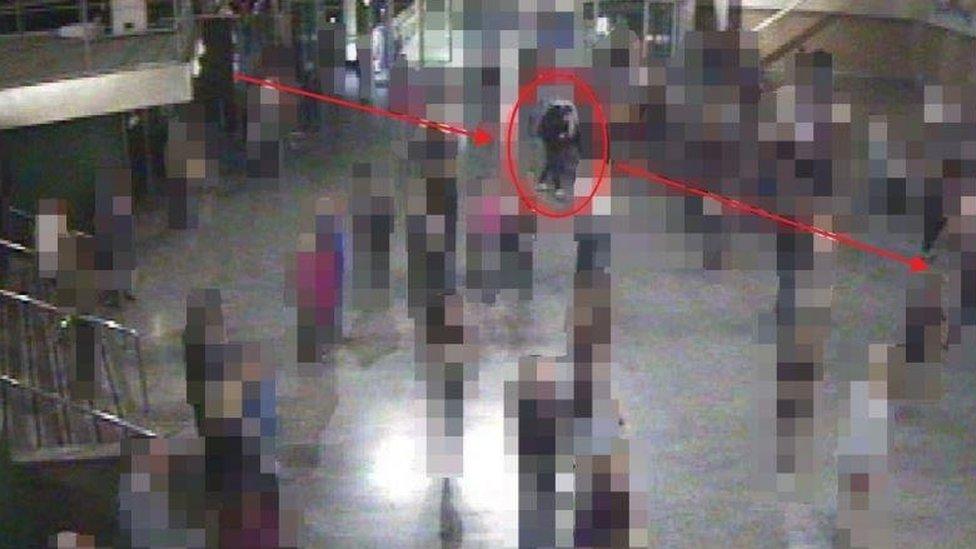
CCTV caught Salman Abedi in the arena foyer just seconds before he blew himself up
Evidence of Manchester Arena bomber Salman Abedi discussing martyrdom was seized almost three years before the attack, an inquiry has heard.
The hearing was told Abedi, who killed 22 people in the May 2017 atrocity, had first been linked to "subjects of interest" in 2010.
A mobile phone seized in February 2017 showed regular contact between Abedi and a convicted terrorist organiser.
Paul Greaney QC said their relationship was of "some significance".
The inquiry heard the device was confiscated from British-Libyan national Abdalraouf Abdallah, who was jailed in 2016 for helping others to reach Syria.
Phone analysis revealed he had been in contact with Abedi, who went to visit him in prison, in the months leading up to the attack.
'Relevant to the attack'
In 2014, during investigations into Abdallah, counter terrorism police had evidence of discussions with Abedi regarding "martyrdom, including the martyrdom of a senior al-Qaeda figure", the inquiry heard.
Mr Greaney said Abdallah had refused to answer any questions put to him by inquiry staff, but investigators were "determined" to get to the bottom of their relationship.
The inquiry will also examine what intelligence and information was or should have been available to security services and the police about Abedi.
Mr Greaney said MI5 had received intelligence about Abedi on two separate occasions in the months prior to the bombing, "the significance of which was not fully appreciated at the time".
"In retrospect", he said, it could "be seen to be highly relevant to the planned attack".
On 1 May 2017, the inquiry further heard, Abedi had been assessed as meeting the threshold to be considered for further investigation by MI5.
He was due to be considered for referral on 31 May 2017 but "tragically this was overtaken by matters nine days earlier", Mr Greaney said.
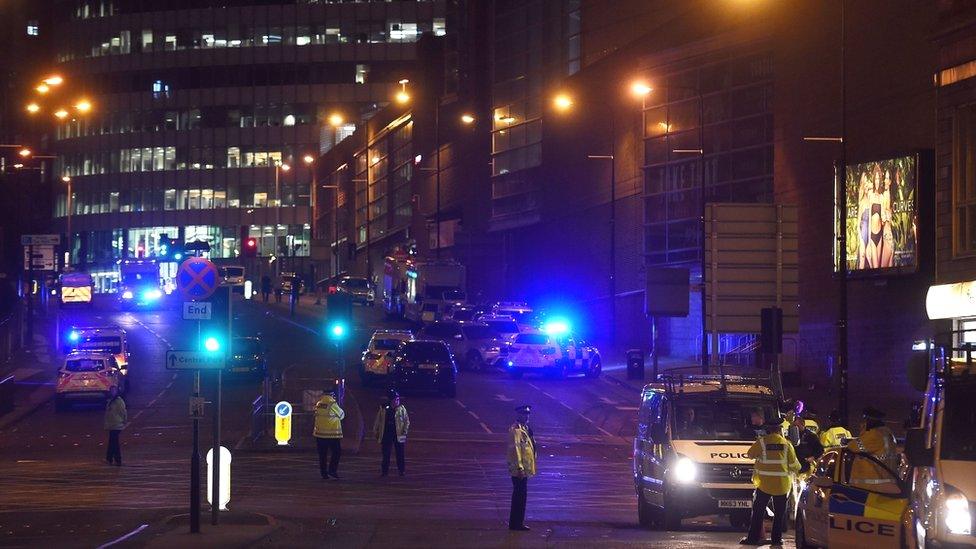
The inquiry is being held at Manchester Magistrates' Court, less than a mile away from where the bombing happened
During the third day of proceedings, photographs of the 22 victims were displayed on a screen as the public inquiry heard their final movements.
Relatives of some of the victims wiped away tears in the hearing room at Manchester Magistrates' Court, while other families watched proceedings from a nearby annexe.
The inquiry heard how 21 of the victim suffered injuries which were said to be unsurvivable.
But bomb blast experts believe the injuries of John Atkinson, 28, may have been potentially survivable.
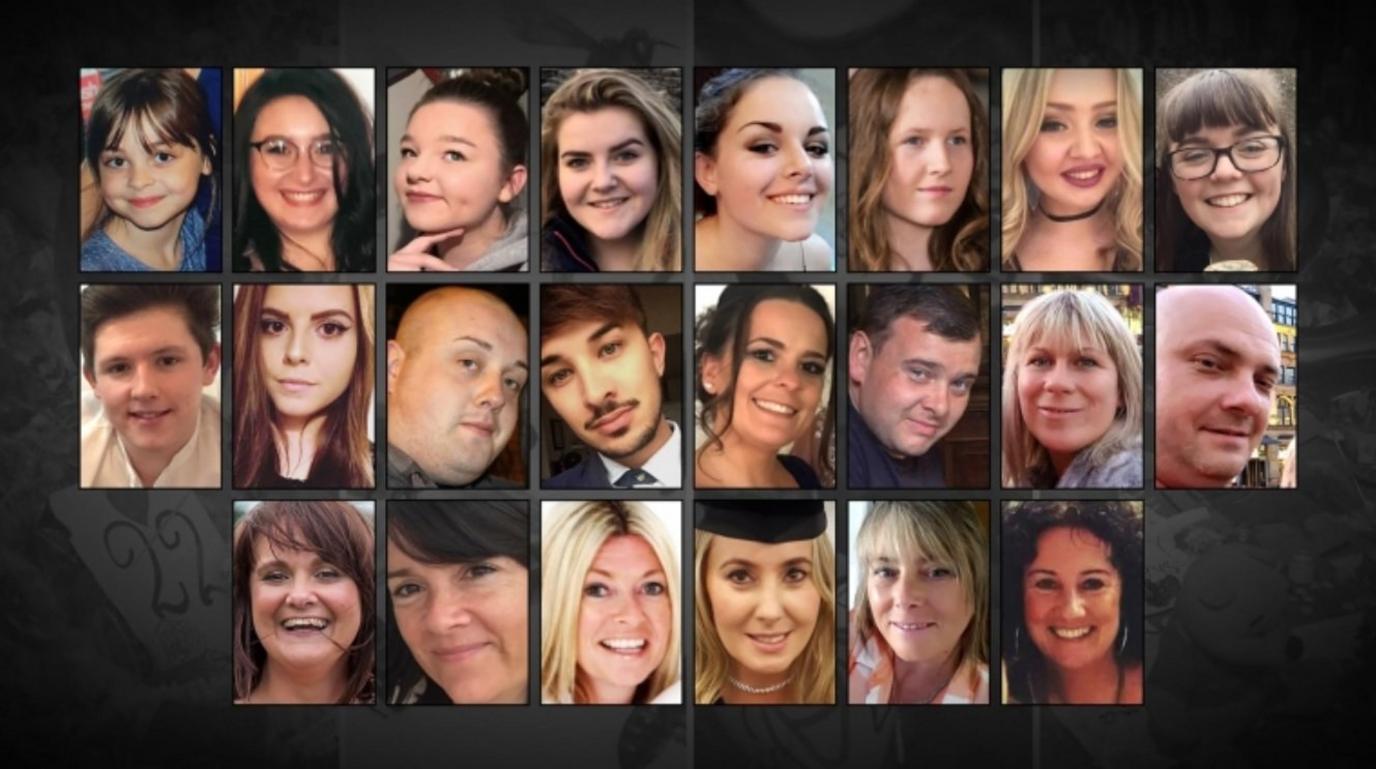
The bombing after an Ariana Grande concert killed 22 people and injured hundreds more
The public inquiry will look at a number of factors including the emergency response to the bombing.
It was told how problems with communication and incorrect reports of an "active shooter" meant fire engines carrying specialist equipment and stretchers did not arrive for another two hours and six minutes after the blast at 22:31 BST on 22 May 2017.
Mr Greaney said the inquiry would need to consider "whether that absence contributed or may have contributed to the loss of life that occurred" and "whether a better response by the emergency services would have saved more lives".
"There can be no doubt there was a need for such joint working on the night of 22 May 2017 in Manchester," he said during the third day of the inquiry.
The hearing was told North West Fire Control was first notified at 22:34 BST that there had been an explosion and mass casualties, and police were looking for a second device.
They also received reports, wrongly, of an "active shooter" and some casualties with gunshot wounds.
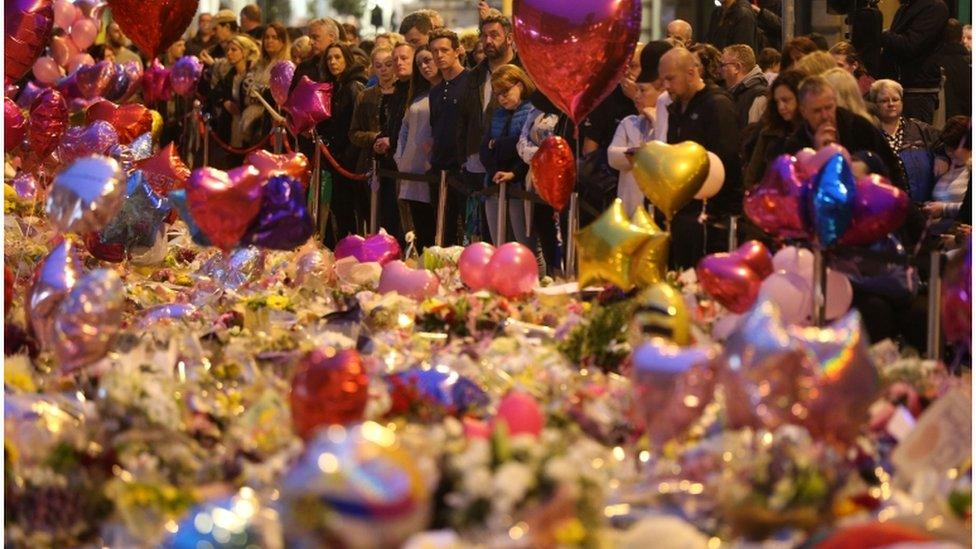
Tributes were left in in St Ann's Square in Manchester city centre in the wake of the bombing
But there appeared to be confusion about whether Greater Manchester Fire and Rescue Service (GMFRS) should follow procedures based on the incident being an explosion or a terror bombing.
Station manager Simon Berry, of GMFRS, was told a rendezvous point was arranged with police at Manchester Cathedral nearby, but this was rejected in favour of a different "muster point" three miles away from the arena.
This decision would be "critical" to the understanding of how the fire service was delayed so long in deploying to the arena, Mr Greaney said.
An expert report on GMFRS's response to the attack found it "inadequate and ineffective" and said there was a lack of effective leadership, though "no single individual" was responsible for the failings.

Why not follow BBC North West on Facebook, external, Twitter, external and Instagram, external? You can also send story ideas to northwest.newsonline@bbc.co.uk, external
- Published8 September 2020
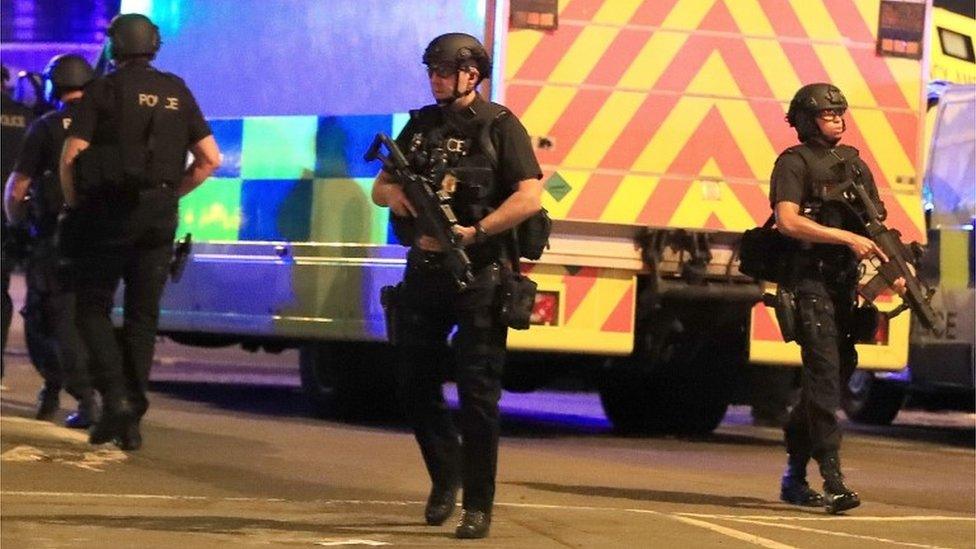
- Published7 September 2020
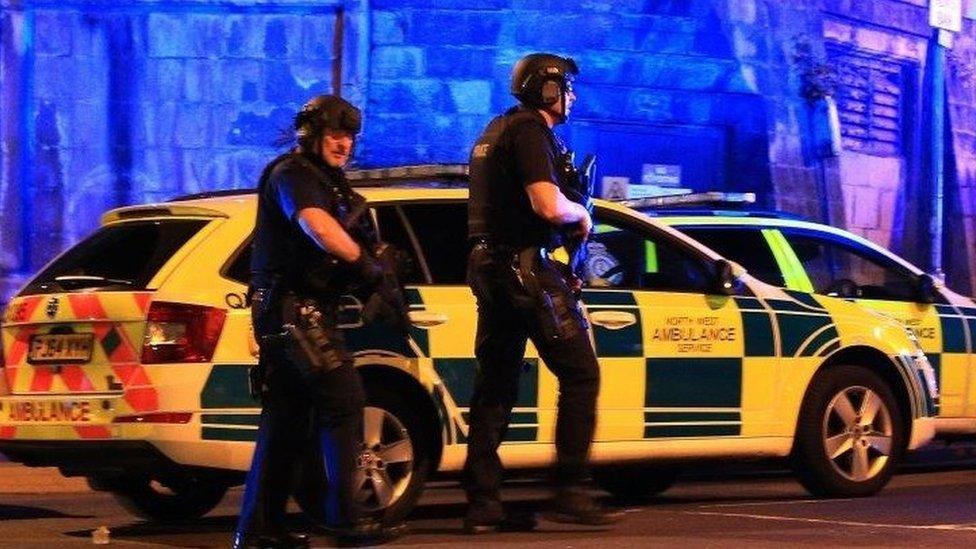
- Published7 September 2020
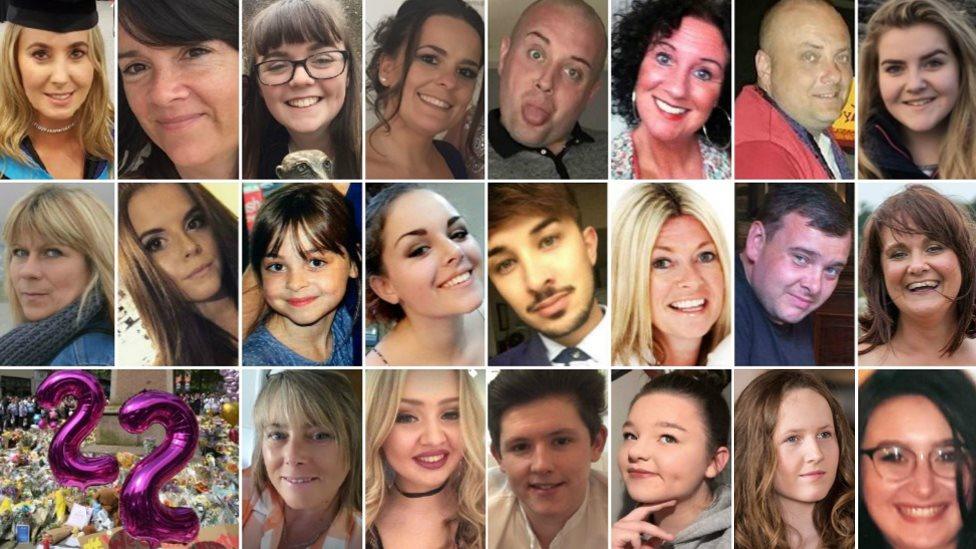
- Published6 September 2020
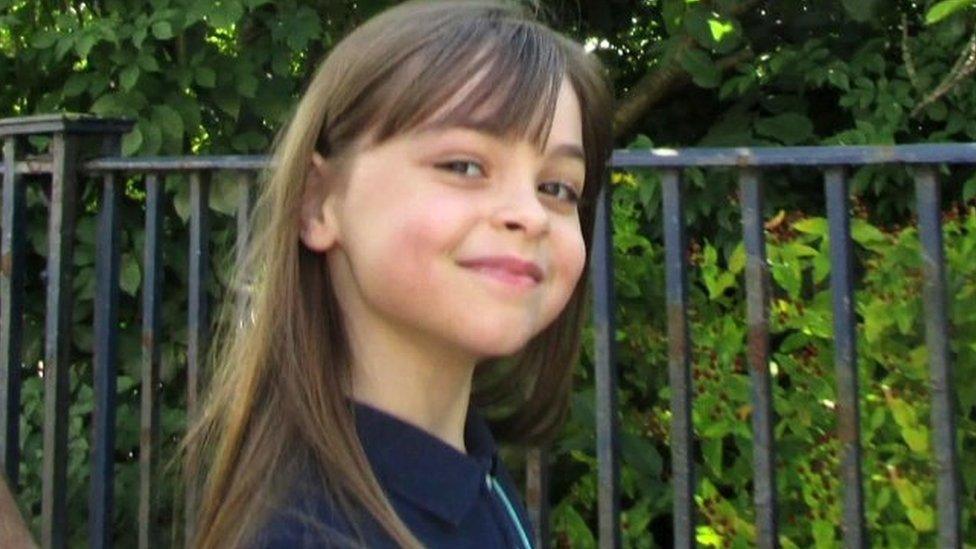
- Published20 August 2020
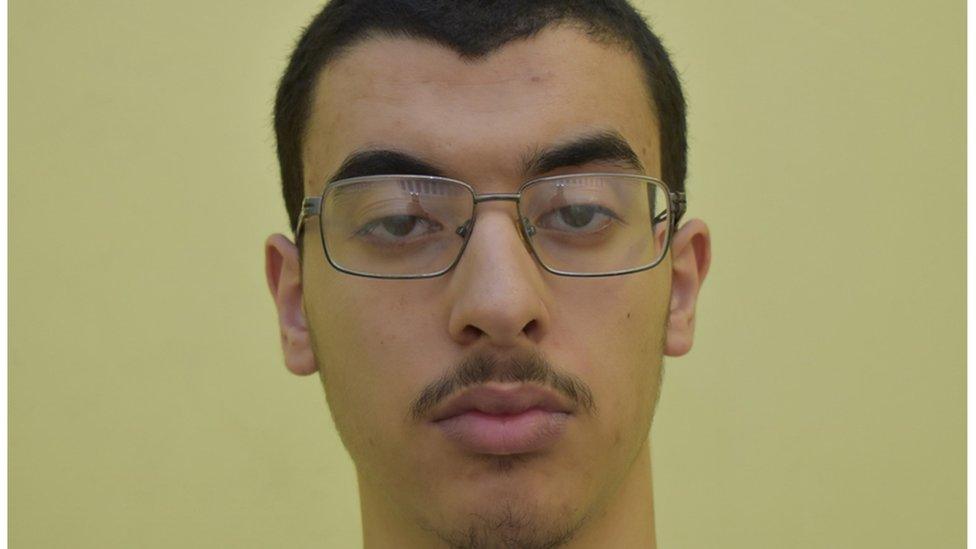
- Published20 August 2020

- Published9 July 2020

- Published27 March 2018
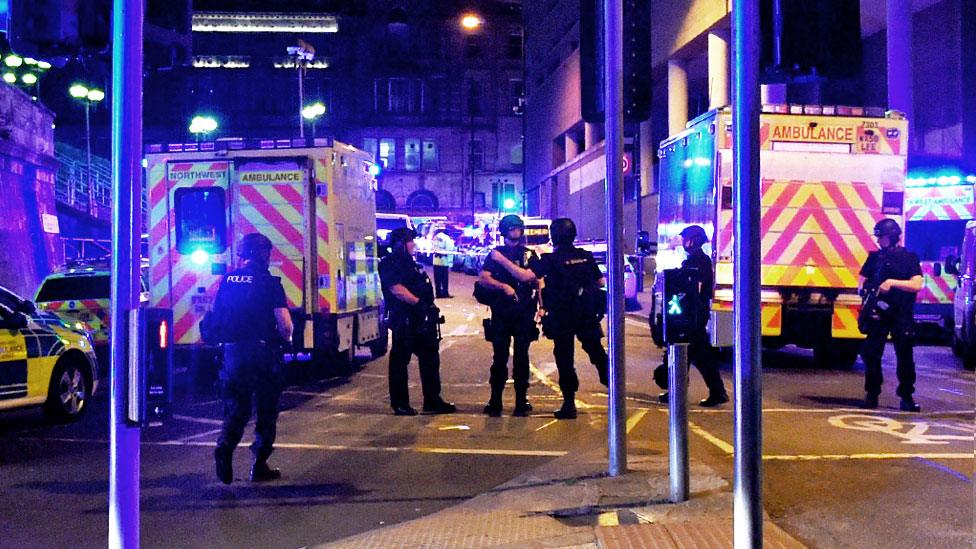
- Published12 June 2017
